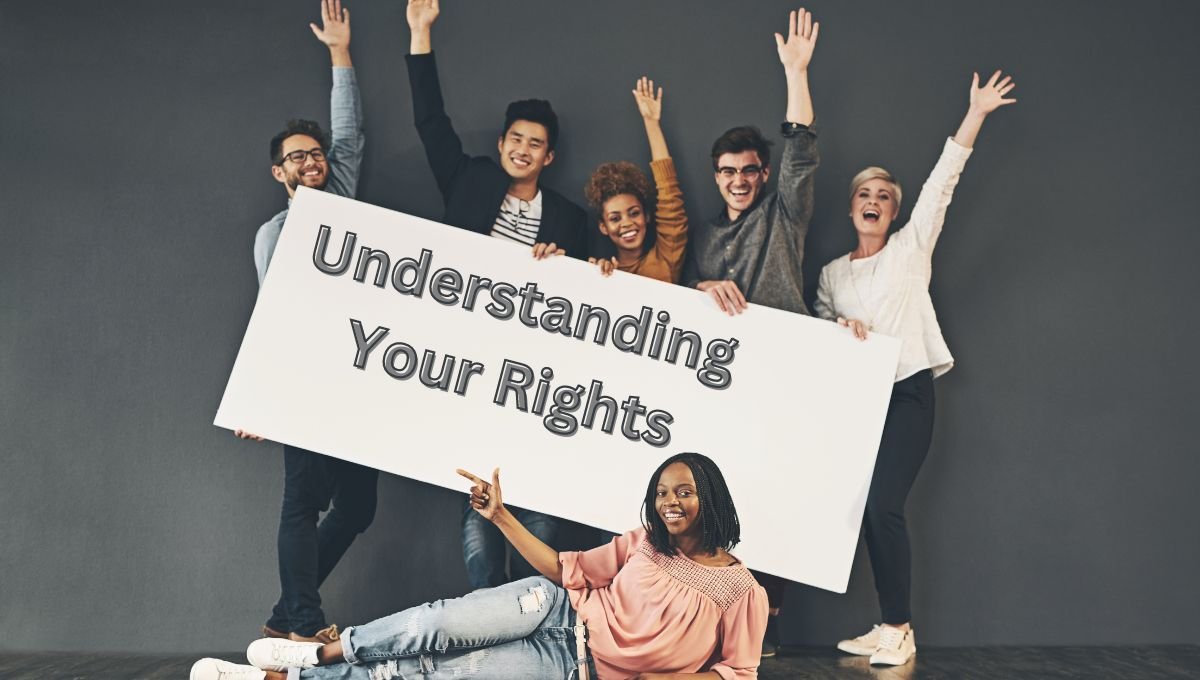Contents
- 1 Understanding Your Rights: A Comprehensive Guide for Clients of Attorneys and Lawyers
- 1.1 The Significance of Knowing Your Lawful Rights
- 1.2 Right to Skillful Portrayal
- 1.3 Classification and Honor
- 1.4 Informed Choices and Assent
- 1.5 Understanding Legitimate Charges and Charging
- 1.6 Right to Be Refreshed and Informed
- 1.7 The Right to Moral Portrayal
- 1.8 The Right to a Fair Preliminary
- 1.9 Understanding Settlement and Exchange Rights
- 1.10 Admittance to Your Authoritative Reports
- 1.11 I am looking for a review of the lawyer’s unfortunate behavior
- 1.12 Picking and Changing Your Legitimate Portrayal
- 1.13 Exploring Debate Goals and Lawful Results
- 1.14 The Option to Address and Challenge Legitimate Counsel
- 1.15 The Significance of Documentation in Judicial Procedures
- 1.16 Ordinary Correspondence and Input Circles
- 1.17 Engaging Yourself Through Legitimate Instruction
Understanding Your Rights: A Comprehensive Guide for Clients of Attorneys and Lawyers
Introduction to Understanding Your Rights
Exploring the legitimate scene can be overwhelming, particularly for individuals who are curious about the complexities of the law. Understanding your rights is essential, whether you’re counseling a lawyer for individual matters, transactions, or startling legitimate issues. This far-reaching guide plans to equip you with fundamental information about your rights while managing lawyers and attorneys in the US, guaranteeing that you are all-around educated and ready for any legitimate communications.

The Significance of Knowing Your Lawful Rights
Understanding your rights is the most important phase in guaranteeing viable lawful portrayal and fair treatment in the overall set of laws. It’s fundamental to know what you are qualified for, what you can expect, and what you can expect from your legitimate guidance. Being educated about your rights enables you during legal procedures as well as assists in building a straightforward and trusting relationship with your lawyer or legal advisor.
Right to Skillful Portrayal
One of the principal rights you have as a client is skillful portrayal. This implies that lawyers and legal advisors should give a learned, capable, and determined portrayal. They ought to have the vital aptitude pertinent to your legitimate matter and execute their obligations overall quite well. Assuming you feel that your lawyer needs the capability to take care of your case, it’s justified to look for a subsequent assessment or think about an adjustment of portrayal.
Classification and Honor
The legal right to privacy is a right that ensures secrecy in many correspondences between you and your lawyer. This honor empowers transparent correspondence, which is essential for successful legitimate portrayal. Understanding the extension and limits of the legal right to privacy is significant, as it can influence the result of your legal issues.

Informed Choices and Assent
You reserve the option to make informed choices regarding your lawful portrayal. This includes being educated about the possible dangers and results of your case, understanding the legitimate systems proposed, and consenting to any significant choices. Lawyers are committed to providing adequate data to empower you to draw very educated conclusions about your legitimate issues.
Understanding Legitimate Charges and Charging
One more basic part of understanding your rights includes being clear about lawful expenses and charging rehearsals. You reserve the option of an itemized clarification of how expenses are determined, what administrations are incorporated, and any extra costs that might emerge. Requesting a composed expense understanding is a decent practice to stay away from any misunderstandings or disagreements regarding lawful charges.
Right to Be Refreshed and Informed
As a client, you have the option to be consistently refreshed and educated about the advancements regarding your case. This incorporates getting ideal data about any turns of events, changes, or choices that might influence what is going on. Lawyers and attorneys are obliged to keep you informed, guaranteeing that you are consistently mindful of your case status and can give input where vital.

The Right to Moral Portrayal
Moral portrayal is a foundation of your rights while managing lawyers and legal counselors. This implies that your lawful delegate should comply with the most noteworthy moral guidelines, including genuineness, respectability, and reasonableness. They ought to stay away from irreconcilable situations and consistently act to their greatest advantage, placing your requirements over their own.
The Right to a Fair Preliminary
In this case, understanding your rights includes realizing that you are qualified for a fair preliminary. This incorporates the right to a fair appointed authority, an able jury (if material), and the chance to put forth your perspective. It likewise incorporates the option to defy and question observers and to be addressed by a legal counselor all through the preliminary cycle.
Understanding Settlement and Exchange Rights
In numerous lawful cases, settlements and talks are critical perspectives. You reserve the privilege to choose whether to settle your case or continue with preliminary proceedings. Legal counselors ought to give far-reaching exhortations on the advantages and disadvantages of settling, yet the ultimate choice ought to be yours. This guarantees that any settlements line up with your well-being and legitimate objectives.

Admittance to Your Authoritative Reports
Clients reserve the option to get to their authoritative archives whenever. This incorporates case records, correspondence, agreements, and court archives. Approaching these archives guarantees straightforwardness and assists you with remaining educated about each angle regarding your legal matter.
I am looking for a review of the lawyer’s unfortunate behavior
If you accept that your lawyer has acted unscrupulously or uncouthly, you reserve the option to look for change. This could incorporate recording a grievance with a significant state bar affiliation or legitimate power. Understanding this right is significant for considering legitimate experts responsible for their activities.
Picking and Changing Your Legitimate Portrayal
In conclusion, it is your entitlement to pick your lawyer or legal advisor and, if vital, change your portrayal. On the off chance that you are disappointed with your ongoing legitimate portrayal under any condition, you are qualified to look for another lawyer who better suits your requirements and assumptions.

Exploring Debate Goals and Lawful Results
In the domain of lawful issues, understanding your rights additionally includes exploring the different roads to your goal. Whether it’s intercession, intervention, or court procedures, knowing the cycles and your rights inside these settings can essentially influence the result. Your lawyer ought to direct you through these cycles, guaranteeing that your rights are secured and your voice is heard. This understanding is essential for accomplishing results that are simple and positive for your circumstances.
The Option to Address and Challenge Legitimate Counsel
As a client, you generally reserve the option to address and challenge the lawful guidance given by your lawyer. If specific suggestions or procedures don’t line up with your assumptions or understanding, voicing your concerns is significant. A decent lawyer will invite such requests and give explanations, guaranteeing that all activities line up with your well-being.
The Significance of Documentation in Judicial Procedures
Legitimate documentation is a basic part of understanding your rights. Guarantee that all arrangements, conversations, and legitimate methodologies with your lawyer are recorded. This not only gives a reasonable record of your lawful excursion but additionally defends your inclinations in any questions about the portrayal or legitimate system.

Ordinary Correspondence and Input Circles
Successful correspondence between you and your lawyer is significant. Ordinary updates, open input circles, and clear channels of correspondence are your rights as a client. These practices help in building serious areas of strength for a client relationship, encouraging a cooperative way to deal with lawful difficulties.
Engaging Yourself Through Legitimate Instruction
In conclusion, enabling yourself through lawful schooling is a proactive method for understanding your rights. While lawyers are there to direct and address you, having an essential understanding of legitimate standards, rights, and cycles can improve your capacity to settle on informed choices. Using assets like lawful sites, studios, and workshops can be valuable in extending your legitimate information.

End and Last Contemplations
In finishing up our investigation of understanding your rights in the lawful domain, this information is crucial for anybody exploring the intricacies of legitimate portrayal. Being very well informed about your rights as a client not only enables you to be in that frame of mind with lawyers and legal counselors but also guarantees that your legitimate issues are taken care of with the highest level of skill and moral thought. From the underlying phases of looking for legitimate insight into the goal of your case, an intensive understanding of these rights lays the foundation for compelling legal results.
The excursion through the lawful cycle is frequently many-sided and testing, yet being outfitted with the right information about your rights can have a massive effect. It changes you from an uninvolved member into an educated, dynamic player in your legal issues. Understanding your rights empowers you to settle on taught choices, pose basic inquiries, and play a more elaborate job toward the path and the board of your case.
As you push ahead in any legitimate undertaking, recall that your rights are the bedrock of fair and simple legal procedures. Whether you are talking with a lawyer interestingly or are amidst a fight in court, remember these standards. Take this information, use it as your safeguard and guide, and step certainly into the lawful world, guaranteed by the security and force of your rights.

(FAQs) for Understanding Your Rights:
1. What are my significant rights as a client of an attorney or legitimate guide?
As a client, your essential rights include the right to legitimate depiction and characterization under the lawful right to privacy, informed consent concerning your case, an obvious understanding of genuine costs, and standard reports on your case’s progression.
2. What is a lawful right from a protection perspective?
The legitimate right to security is a legal decision that ensures grouping among you and your attorney. It suggests that anything you inspect with your legal counselor associated with your case is private and can’t be revealed without your consent, with two or three exceptions.
3. Might I ever change lawful advocates if I’m not content with my continuous depiction?
For sure, you have the choice to change your legitimate counsel if you are unsatisfied with their depiction. Ensuring smooth advancement and managing any associated legal or financial responsibilities while changing genuine portrayals is paramount.

4. How should I ensure that my legal counselor acts to my most prominent benefit?
To ensure your attorney acts to your most noteworthy benefit, stay aware of open correspondence, demand standard updates, and make a point to settle on requests concerning methods or decisions. Stay informed about your case and participate in powerful cycles.
5. How might it be prudent for me to answer if I feel my rights as a client are being dismissed?
If you feel your rights as a client are being ignored, address your inclinations clearly with your legal counselor. If the issue isn’t settled, consider searching for a resulting evaluation or recording a protest with the state bar connection.
6. How are we not altogether permanently established and charged by attorneys?
Authentic charges change depending upon the case type, legal counselor’s ability, and geographic region. Costs can be charged hourly, at a level rate, on a potential premise, or as a retainer. Discuss and understand the charging procedure before utilizing a legal counselor.
7. What is my part in the legal counselor-client relationship?
Your part in the attorney-client relationship consolidates giving exact information about your case, staying attracted and responsive, making informed decisions concerning your case, and meeting any financial or definitive responsibilities associated with your genuine depiction.








